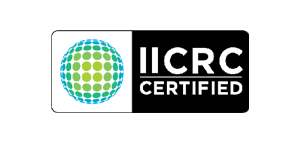Welcome to our comprehensive guide on understanding the common causes of water damage and how to prevent it. Water damage can wreak havoc on your property and lead to costly repairs. By gaining insight into the main culprits behind water damage, you can take proactive measures to protect your home and belongings.
In this section, we will explore the most frequent causes of water damage in homes and provide you with valuable tips to minimize the risk. Whether you are a homeowner or a renter, understanding these common causes is paramount for maintaining a safe and dry living environment.
Key Takeaways:
- Water damage can have severe consequences, including structural damage, mold growth, and damage to personal belongings.
- Plumbing issues, weather-related factors, appliance malfunctions, and poor home maintenance are major contributors to water damage.
- Regular inspections, prompt repairs, and preventative measures are crucial for preventing and addressing water damage effectively.
- Stay vigilant with maintenance tasks such as cleaning gutters, sealing cracks, and ensuring appliances are in good working condition.
- Seek professional assistance when needed to assess, repair, or mitigate potential water damage risks in your home.
Plumbing Issues: The Leading Cause of Water Damage
When it comes to potential water damage in your home, plumbing issues are at the top of the list. Leaking or burst pipes and faulty plumbing systems can wreak havoc and result in costly repairs. In this section, we will explore the various plumbing issues that commonly lead to water damage and discuss effective methods for detection and resolution.
Leaking pipes are a major culprit of water damage. Whether it’s a slow drip or a sudden rupture, even a small leak can cause significant harm over time. From damaged walls and ceilings to the growth of mold and mildew, the consequences of a leaking pipe can be extensive.
Furthermore, burst pipes can cause immediate and severe water damage. Freezing temperatures, excessive pressure, or aging pipes can all contribute to a pipe bursting. When this happens, a large volume of water can flood your home in a short period of time, resulting in extensive damage to your property and belongings.
Faulty plumbing systems pose another risk of water damage. Poor installation, worn-out components, or aging infrastructure can cause frequent leaks and other plumbing issues, leading to long-lasting damage if not addressed promptly.
It is crucial to detect and address plumbing issues early on to prevent water damage. Regularly inspecting your plumbing system, checking for signs of leaks or corrosion, and promptly addressing any detected issues are key preventive measures. Additionally, it is important to ensure proper insulation in areas prone to freezing temperatures and to seek professional assistance for any complex plumbing problems.
By understanding the common plumbing issues that can lead to water damage and taking proactive measures to address them, you can protect your home and mitigate the risk of costly repairs. Remember, timely detection and prompt action are vital when it comes to maintaining a watertight plumbing system and safeguarding your property from the damaging effects of water.
Weather-Related Factors: Contributing to Water Damage
Weather conditions play a significant role in the occurrence of water damage in homes. Heavy rain, storms, floods, and hurricanes can all pose a threat to the structural integrity of your property. In this section, we will explore how these weather-related factors can affect your home and provide valuable tips on how to prepare and protect your property.
During periods of heavy rain, the excessive water can seep into your home through vulnerable areas such as cracks in the foundation, damaged roofs, or compromised windows. This can lead to water damage in the form of dampness, mold growth, and even structural issues if left unchecked.
Storms, floods, and hurricanes pose an even greater risk of water damage due to their destructive power. These extreme weather events can cause flooding, roof damage, and water intrusion on a large scale. The magnitude of water damage from these events can be devastating, resulting in costly repairs and potential loss of personal belongings.
To minimize the risk of weather-related water damage, it is essential to take proactive measures. Here are some tips:
- Ensure proper drainage around your property by maintaining clean gutters and downspouts.
- Seal any cracks or gaps in your home’s exterior walls and foundation to prevent water seepage during heavy rain.
- Regularly inspect your roof for any signs of damage, such as missing shingles or leaks, and address them promptly.
- Invest in storm shutters or impact-resistant windows to protect your home during severe weather events.
- Consider installing a sump pump or a water alarm system in your basement to detect and prevent flooding.
- Keep important documents and valuable belongings stored in waterproof containers or elevated areas to protect them from potential water damage.
By taking these precautions and staying vigilant during weather-related events, you can minimize the risk of water damage to your home and ensure the safety of your loved ones. Being prepared is the key to mitigating the impact of unpredictable weather conditions.
| Weather Event | Potential Impact |
|---|---|
| Heavy Rain | Infiltration through cracks and damaged roofing, leading to leaks and dampness. |
| Storms | Strong winds and heavy rain can cause widespread damage to roofs, windows, and structures. |
| Floods | Severe flooding can result in extensive water damage, affecting foundations, walls, and electrical systems. |
| Hurricanes | High winds, storm surges, and heavy rainfall can lead to catastrophic water damage and structural devastation. |
Understanding the potential risks associated with weather-related water damage and implementing the necessary precautions can safeguard your home and provide you with peace of mind, even during the most severe weather events.
Appliance Malfunctions: An Unexpected Cause of Water Damage
When it comes to water damage in your home, faulty appliances can be an unexpected culprit. From washing machine leaks to dishwasher malfunctions, appliance-related issues can lead to substantial water damage if left unchecked. In this section, we will explore common appliance malfunctions that can result in water damage and provide guidance on how to prevent and address these issues effectively.
Common Appliance-Related Causes of Water Damage
Faulty washing machines and dishwashers are two appliances that can cause significant water damage if not properly maintained or repaired. Common issues that can lead to water damage include:
- Leaking washing machine hoses
- Faulty dishwasher seals
- Clogged drain pipes in dishwashers
- Malfunctioning water inlet valves
These appliance malfunctions can result in water leaks, which, if left unattended, can lead to costly water damage to your floors, cabinets, and surrounding areas. It is crucial to address these issues promptly to prevent further damage and expenses.
Prevention and Addressing Appliance Malfunctions
Preventing appliance malfunctions and subsequent water damage starts with regular maintenance and inspections. Here are some steps you can take:
- Check for signs of wear and tear in washing machine hoses and replace them if necessary.
- Inspect dishwasher seals regularly and replace them if they are cracked or damaged.
- Ensure proper installation and maintenance of water inlet valves to prevent leaks.
- Clean and maintain the drain pipes in your dishwasher to prevent clogs and water backups.
If you notice any leaks or malfunctions, it is essential to take immediate action. Here are some steps you can follow:
- Shut off the water supply to the affected appliance.
- Contact a professional appliance repair service to diagnose and fix the issue.
- Remove any standing water and dry the affected areas to prevent further damage or mold growth.
By being proactive in maintaining your appliances and addressing any malfunctions promptly, you can significantly reduce the risk of appliance-related water damage in your home.
Poor Home Maintenance: A Preventable Cause of Water Damage
Neglected home maintenance can lead to water damage and costly repairs. By overlooking important upkeep tasks, you increase the risk of water infiltration and structural issues in your home. It is crucial to prioritize regular maintenance to prevent water damage and maintain the integrity of your property.
Key Areas of Home Maintenance
Proactive measures in these key areas of home maintenance are essential to prevent water damage:
- Clogged gutters: Ensure your gutters are regularly cleaned and free of debris. Clogged gutters can lead to water overflow, causing damage to the roof, walls, and foundation. Regular gutter cleaning prevents this potential risk and safeguards your home from water damage.
- Roof repairs: Inspect your roof periodically for any signs of damage, such as missing or cracked shingles. Addressing these issues promptly minimizes the risk of water leakage, which can cause extensive damage to your attic, ceilings, and walls.
- Foundation maintenance: Check for any cracks or gaps in your foundation walls or floors. Water seepage through foundation cracks is a common cause of water damage. It is crucial to repair any cracks or gaps immediately to prevent water infiltration and potential structural issues.
By prioritizing these areas of home maintenance, you can protect your property from water damage and avoid costly repairs. Additionally, regular inspection and upkeep help identify problems early on and prevent them from escalating into more significant issues.
Stay proactive and invest the time and effort required to maintain your home effectively. By doing so, you will safeguard your property, prevent water damage, and ensure the longevity of your home.
Conclusion
In conclusion, safeguarding your home from water damage requires understanding the common causes and implementing preventive measures. By addressing plumbing issues promptly, you can prevent leaks and burst pipes that often lead to water damage. Regular maintenance of appliances, such as washing machines and dishwashers, is vital to avoid unexpected water damage incidents.
Preparing for adverse weather conditions, such as heavy rain, storms, floods, and hurricanes, is crucial. This can involve clearing gutters and downspouts to prevent water accumulation and ensuring your property is well-sealed and protected. Additionally, maintaining your home through regular inspections and repairs will prevent water seepage and structural damage.
By following this comprehensive guide, you can significantly reduce the risk of water damage to your home. Take proactive steps to address plumbing issues, stay vigilant during adverse weather, and prioritize maintenance. With these preventive measures, you can protect your property, belongings, and ensure peace of mind for you and your loved ones.
FAQ
What are the most common causes of water damage in homes?
The most common causes of water damage in homes include plumbing issues, weather-related factors, appliance malfunctions, and poor home maintenance.
How can I prevent water damage?
To prevent water damage, it is essential to address plumbing issues promptly, prepare for adverse weather conditions, maintain appliances, and regularly maintain your home, including managing clogged gutters and addressing roof issues.
What are some common plumbing issues that can cause water damage?
Common plumbing issues that can cause water damage include leaking or burst pipes, faulty plumbing systems, and appliance leaks, such as those from washing machines or dishwashers.
How can I detect and address plumbing issues effectively?
Regularly inspect your plumbing systems for signs of leaks, such as water stains, musty odors, or dampness. If you notice any issues, such as dripping faucets or low water pressure, it is crucial to contact a professional plumber to address them promptly.
How can weather-related factors contribute to water damage?
Heavy rain, storms, floods, and hurricanes can cause water damage by entering your home through leaky roofs, windows, or cracks in the foundation. Additionally, excess moisture from high humidity can lead to mold growth and other water-related problems.
How can I prepare and protect my property from weather-related water damage?
To prepare for adverse weather conditions, ensure your roof is in good condition, seal any gaps or cracks, clean and maintain gutters and downspouts, and consider installing flood barriers or waterproofing systems.
What are some common appliance malfunctions that can result in water damage?
Common appliance malfunctions that can lead to water damage include faulty washing machines, dishwashers, refrigerators, and water heaters. Leaks, overflowing, or malfunctioning parts can cause water to escape and damage your home.
How can I prevent appliance malfunctions from causing water damage?
Regularly inspect and maintain your appliances, look for signs of leakage or malfunctioning parts, and promptly address any issues by repairing or replacing faulty components.
How does poor home maintenance contribute to water damage?
Neglected home maintenance, such as not addressing clogged gutters, roof issues, or cracks in the foundation, can result in water-related problems. Water can seep into your home through these vulnerabilities and lead to damage if not addressed.
What steps can I take to maintain my home effectively and prevent water damage?
It is essential to regularly clean and maintain gutters, address roof issues promptly, seal cracks in the foundation, and ensure proper insulation. Additionally, keeping an eye out for signs of moisture or leaks and addressing them promptly can prevent further water damage.





